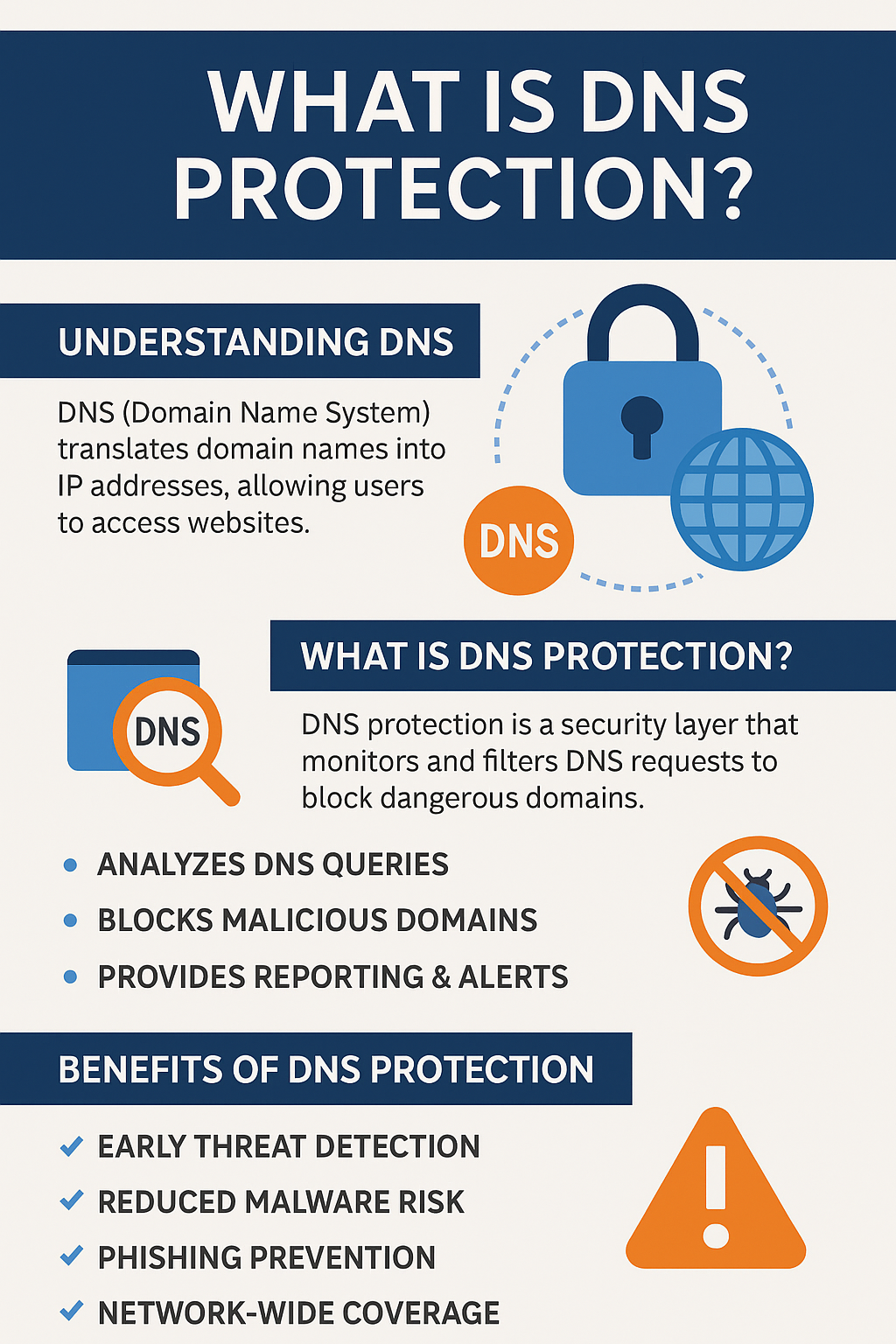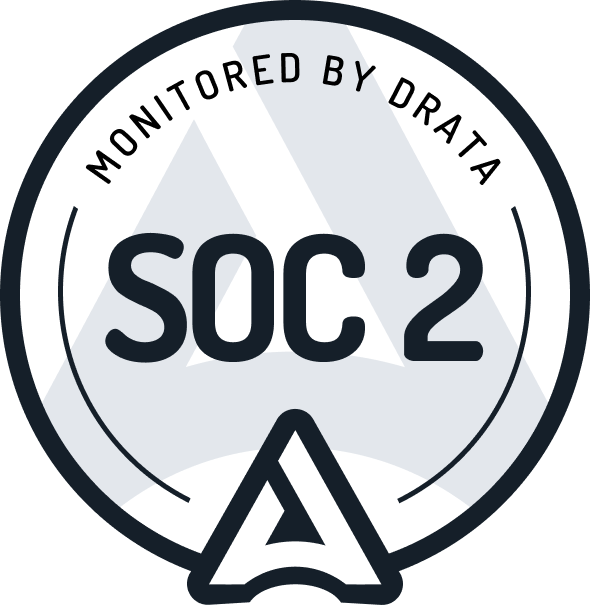What is DNS Protection?
In today’s interconnected world, cybersecurity threats are evolving faster than ever. One of the most effective — yet often overlooked — defenses for both businesses and individuals is DNS protection. But what exactly is it, and why is it essential for safeguarding your network and data?
Understanding DNS
The Domain Name System (DNS) is often called the “phone book of the internet.” When you type a website name (like example.com) into your browser, DNS translates it into the IP address that computers use to communicate. Without DNS, browsing the internet as we know it wouldn’t be possible.
However, because DNS is such a fundamental part of internet communication, it’s also a prime target for cybercriminals. Threat actors exploit DNS to launch phishing attacks, distribute malware, or redirect users to malicious sites.
What is DNS Protection?
DNS protection — sometimes referred to as protection DNS or a protective DNS service — is a security layer that monitors and filters DNS requests to prevent users from connecting to dangerous or suspicious domains.
When a device on your network tries to reach a website, a DNS protection solution checks the requested domain against threat intelligence databases. If the domain is known to host malware, phishing content, or command-and-control servers, the request is blocked before any connection is made.
How Does a Protective DNS Service Work?
A protective DNS service operates between the user’s device and the open internet. It:
- Analyzes DNS Queries – Every request to resolve a domain is checked in real time.
- Blocks Malicious Domains – Threat intelligence feeds identify domains linked to malware, phishing, botnets, and other threats.
- Provides Reporting & Alerts – Administrators can see what threats were blocked and where they originated.
- Integrates with Other Security Tools – Many solutions work alongside firewalls, endpoint protection, and secure web gateways for layered defense.
Benefits of DNS Protection
- Early Threat Detection – Stops threats before they can reach devices or users.
- Reduced Malware Risk – Prevents malware downloads from known malicious sites.
- Phishing Prevention – Blocks fake websites designed to steal credentials.
- Network-Wide Coverage – Protects all devices on a network without requiring individual installations.
- Compliance Support – Helps organizations meet security requirements for regulations like HIPAA, GDPR, and CMMC.

Choosing a DNS Protection Solution
When evaluating protective DNS service providers, consider:
- Accuracy of Threat Intelligence – Quality and freshness of domain reputation databases.
- Ease of Deployment – Cloud-based services can be activated quickly without complex setup.
- Reporting and Analytics – Detailed reports help track blocked threats and suspicious activity.
- Scalability – The ability to protect remote users, branch offices, and IoT devices.
- Integration – Works seamlessly with your existing cybersecurity stack.
Final Thoughts
A DNS protection solution is a critical yet cost-effective way to stop cyberattacks before they cause harm. By filtering DNS requests through a protective DNS service, you can block malicious activity at the earliest stage — often before traditional antivirus or endpoint security detects it.
Whether you manage a small business or a large enterprise, EntrustedMail provides protective DNS service providers that can help you maintain a secure and resilient network environment.


